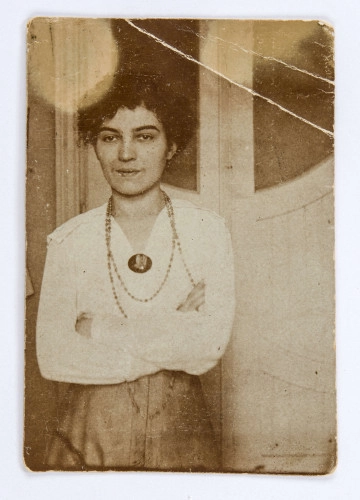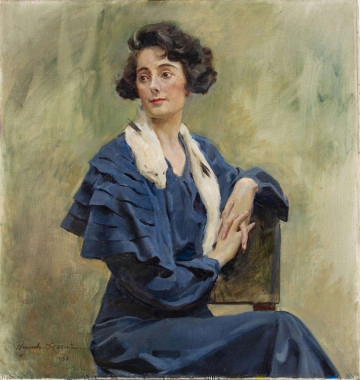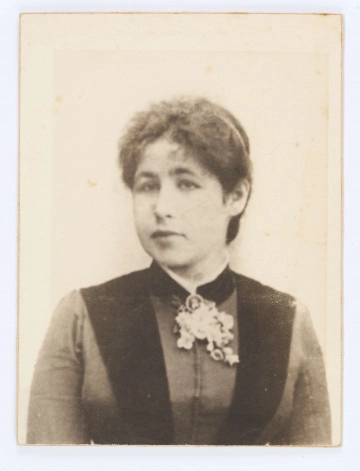
Katarzyna Czechowiczówna
1st half of the 20th century
National Museum in Lublin
Part of the collection: Portrait painting (17th–early 20th c.)
Roman Kramsztyk, Polish painter of Jewish origin, born on 18 August 1885 in Warsaw, died on 6 August 1942 in the Warsaw Ghetto. He is considered a representative of the New Classicism movement. He studied under Józef Mehoffer and at the Academy of Fine Arts in Munich. He also spent time in Paris. He was inspired by the paintings of Paul Cézanne, among others.
In 1933 Kramsztyk observed: “We are now experiencing a significant turning point in the art of painting, whose interests are being directed towards classical art. This does not mean that painting is turning towards academicism: it is going in the direction of true and good classical art. The portrait, seriously neglected in recent years, is being revived, the art of drawing is gaining attention, colour is being toned down and deepened; the colour patch, as a mere decorative value, is disappearing”.
At the centre of this artist's interests was the human being. His works were dominated by portraits, although landscape and still life were also among the painting genres that interested him. In his pastel and sanguine drawings he was inspired by the physiognomic studies of Leonardo da Vinci. His portraits (Vanitas, The Chess Player, The Poet, The Philosopher, The Actress) sometimes took the form of allegories, operated with symbolism, and thus had a universal expression.
“In the case of a portrait,” said the artist in an interview for Kurier Czerwony, “First of all, I wish to reveal, to extract the painting content inherent in the model. Hence my portraits are not actual effigies, because the human figure or head presented in them is merely the organic element of a certain compositional whole, strictly subject to the general rules governing it”.
Kramsztyk's drawings are characterized by a tendency to idealize and use delicate chiaroscuro. His portraits from the 1930s are characterized by allure and charm, whereas the psychological features intended to reflect the interior of the portrayed person are of secondary importance.
Klara Sadkowska
Author / creator
Dimensions
cały obiekt: height: 45,6 cm, width: 59,6 cm
Object type
drawing
Technique
drawing technique
Material
paper, sanguine
Creation time / dating
Creation / finding place
Owner
The National Museum in Lublin
Identification number
Location / status

unknown (photographer)
1st half of the 20th century
National Museum in Lublin

Kossak, Wojciech
1933
National Museum in Lublin

unknown (photographer)
1887
National Museum in Lublin
DISCOVER this TOPIC
Castle Museum in Łańcut
DISCOVER this PATH
Educational path
0/500

We use cookies to make it easier for you to use our website and for statistical purposes. You can manage cookies by changing the settings of your web browser. More information in the Privacy Policy.
We use cookies to make it easier for you to use our website and for statistical purposes. You can manage cookies by changing the settings of your web browser. More information in the Privacy Policy.
Manage cookies:
This type of cookies is necessary for the website to function. You can change your browser settings to block them, but then the website will not work properly.
WYMAGANE
They are used to measure user engagement and generate statistics about the website to better understand how it is used. If you block this type of cookies, we will not be able to collect information about the use of the website and we will not be able to monitor its performance.